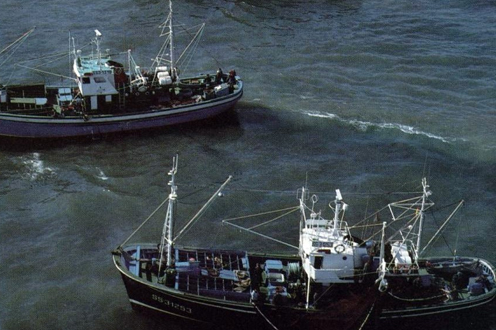At the 5th round of talks in Nouakchott (Mauritania)
Spain obtains significant improvements during renewal of fisheries agreement with Mauritania
News - 2015.7.10
The new protocol will allow the more than 50 Spanish boats that had been operating in the fishing ground until 2014 to return by the end of the year, once the ratification process has been completed.
Improvements in the new protocol
The improvements obtained on the previous protocol will benefit the shellfishing fleet because one of the two fishing grounds closed off under the previous protocol has been re-opened. Furthermore, given the good health of shellfish stocks, the two parties have decided to cancel the biological recovery periods for these stocks. This will allow the fleet to operate all year round.
As regards the black hake trawler fleets and bottom longliners for species other than hake, quotas have been increased to 6,000 and 3,000 tonnes, respectively. This will allow the number of boats to be increased. Furthermore, as requested by the fishing sector, the measure aimed at moving the two fleets further away from the coast scheduled for implementation during the biological recovery periods for octopus has been cancelled because their activity does not affect this species. This will allow them to continue their activity in the traditionally most productive area all year round.
As regards tuna fishing, the new protocol allows the highly migratory species fleet to return to one of the best fishing grounds in the Atlantic. The trawler, pole and longliner fleets will be able to operate under similar conditions as those under other agreements for highly migratory species because the control and access measures in this new protocol have been harmonised with those contained in other tuna agreements.
The European Commission is going to pay 55 million euros per year for the new quotas, compared with the 67 million euros it paid under the previous agreement. This will include the quotas for pelagic fishing in northern Europe countries. In addition, the protocol provides for a subsidy for the development of the fisheries sector in Mauritania amounting to 4 million euros per year.
Within the opportunities for this new period, the two parties have agreed that the joint committee set up for this purpose may attribute fishing quotas to freezer trawlers for those demersal species showing a surplus. This could allow the freezer vessels that operated there in the past to return in the near future.
This new protocol, which will remain in force for a period of four years instead of two, will provide stability to the fleet that was operating under the previous agreement while also completing the network of fisheries agreements renewed during the course of this legislature, which include those with Morocco, Senegal and Guinea-Bissau.





